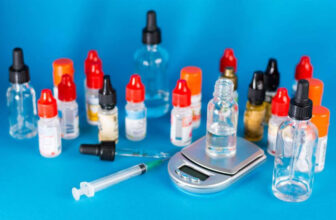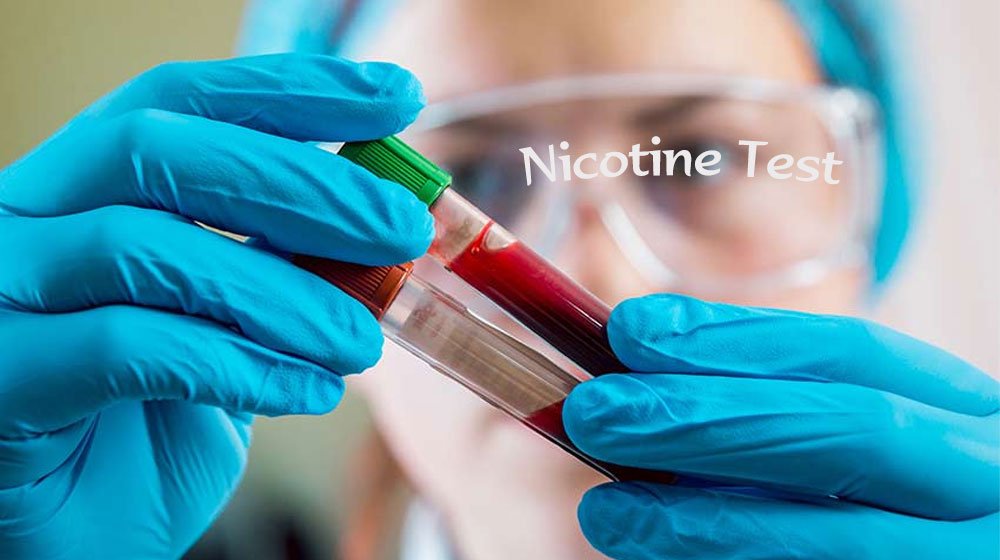
Nicotine tests are used to detect the presence of nicotine in the body, which is a chemical compound found in tobacco and vaping products. These tests are commonly conducted to determine if an individual has been using nicotine, particularly for employment purposes or health assessments.
There are several types of nicotine tests that can be performed, including urine tests, blood tests, saliva tests, hair tests, breath tests, and cotinine tests. Each test has its own advantages and limitations, depending on the specific needs and requirements of the situation.
Urine tests are one of the most common methods used to check for nicotine use. They can detect the presence of nicotine and its byproducts in the urine, indicating recent nicotine use. Saliva tests, on the other hand, involve swabbing the mouth to collect a sample and can also reveal recent nicotine use.
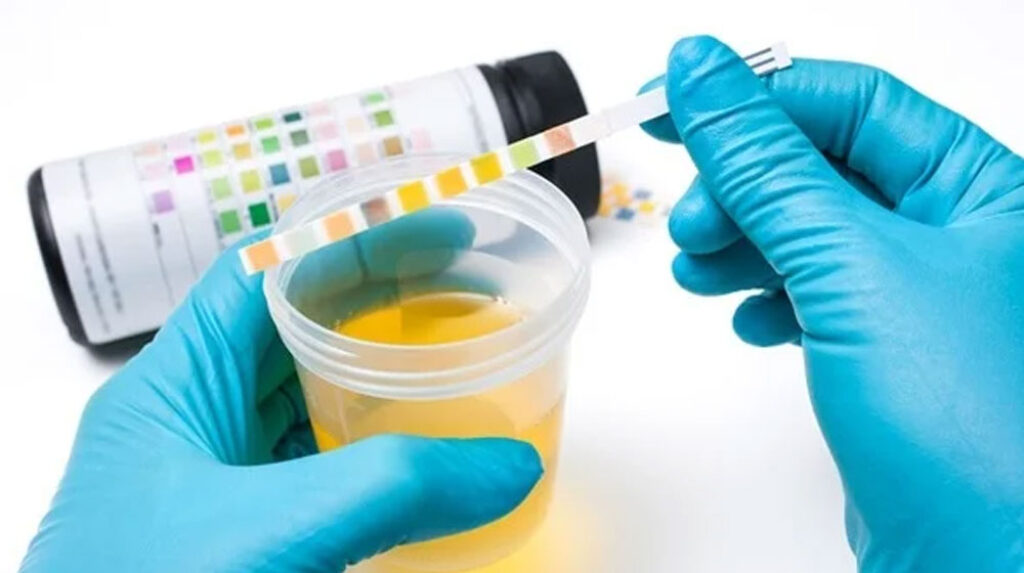
Blood tests can provide information about nicotine levels in the bloodstream and can indicate how long it has been since nicotine was last used. Hair tests are unique in that they can detect nicotine use over a longer period of time, as nicotine can remain in the hair for an extended period.
Breath tests are often used to detect recent smoking or vaping, as nicotine can increase carbon monoxide levels in the breath. Cotinine tests, on the other hand, measure the levels of cotinine, a substance produced when the body breaks down nicotine and can reveal recent nicotine use even if the individual denies it.
Understanding the different types of nicotine tests is essential for individuals who vape and may be required to undergo a nicotine test. By knowing the specific test being conducted, individuals can better prepare themselves and take appropriate measures to pass the test if desired.
Types of Nicotine Tests
When it comes to nicotine testing, there are several types of tests that can be conducted to detect the presence of nicotine in your system. These tests include urine tests, blood tests, saliva tests, hair follicle tests, breath tests, cotinine tests, and tests for nicotine replacement therapy (NRT) products.
- Urine Tests: Urine tests are one of the most common methods used to detect nicotine use. These tests can detect the presence of nicotine and its byproducts in your urine, indicating recent nicotine use. It’s important to note that nicotine can be detected in urine for several days after use.
- Blood Tests: Blood tests provide real-time information about nicotine and its metabolites in your bloodstream. These tests are often used to detect recent nicotine use and can provide accurate results within a short period of time. Nicotine can typically be detected in the blood for a few hours to a few days after use.
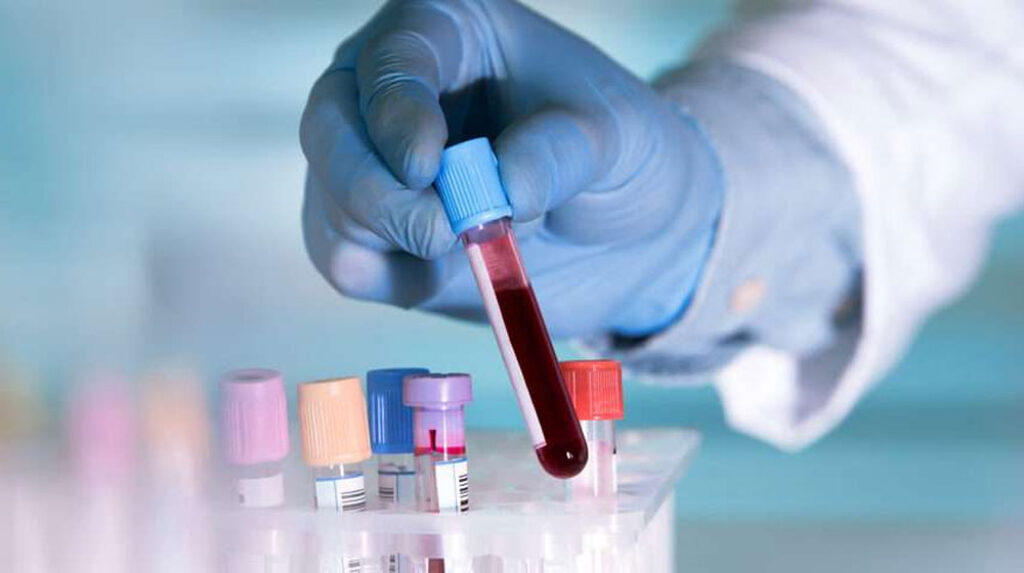
- Saliva Tests: Saliva tests are used to detect nicotine and its metabolites in your saliva. These tests are quick and non-invasive, making them a popular choice for detecting recent nicotine use. Nicotine can be detected in saliva for a few days after use.
- Hair Follicle Tests: Hair follicle tests have an extended detection window and can detect nicotine use over a longer period of time. Nicotine and its metabolites can become trapped in the hair shafts as hair grows, allowing for detection of nicotine use over several months.
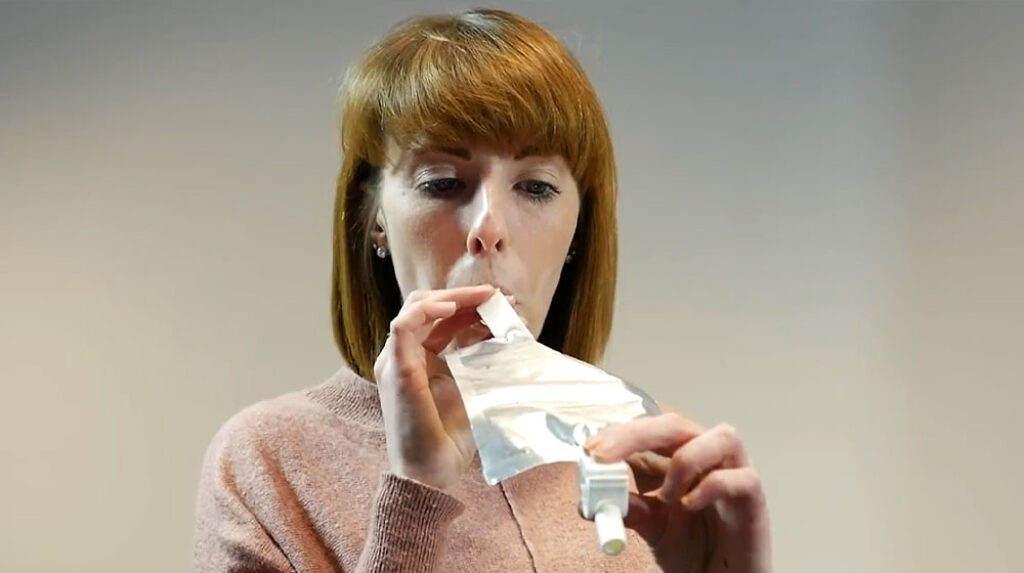
- Breath Tests: Breath tests can detect recent nicotine use by measuring the levels of carbon monoxide in your breath. Nicotine use can increase carbon monoxide levels, making breath tests an effective method for detecting nicotine use.
- Cotinine Tests: Cotinine is a substance that your body produces when it breaks down nicotine. Testing for cotinine can reveal recent nicotine use, even if you claim to have not used nicotine.
- Nicotine Replacement Therapy (NRT) Tests: If you are using nicotine replacement therapy products such as patches or gum, a test may be conducted to ensure that you are using these products as prescribed.
Each type of nicotine test has its own advantages and limitations, and the specific test that is conducted may depend on the purpose of the test and the preferences of the testing facility. It’s important to be aware of the type of test you may be required to take and the detection window associated with each test.
How Long Does Nicotine Stay in Your System?
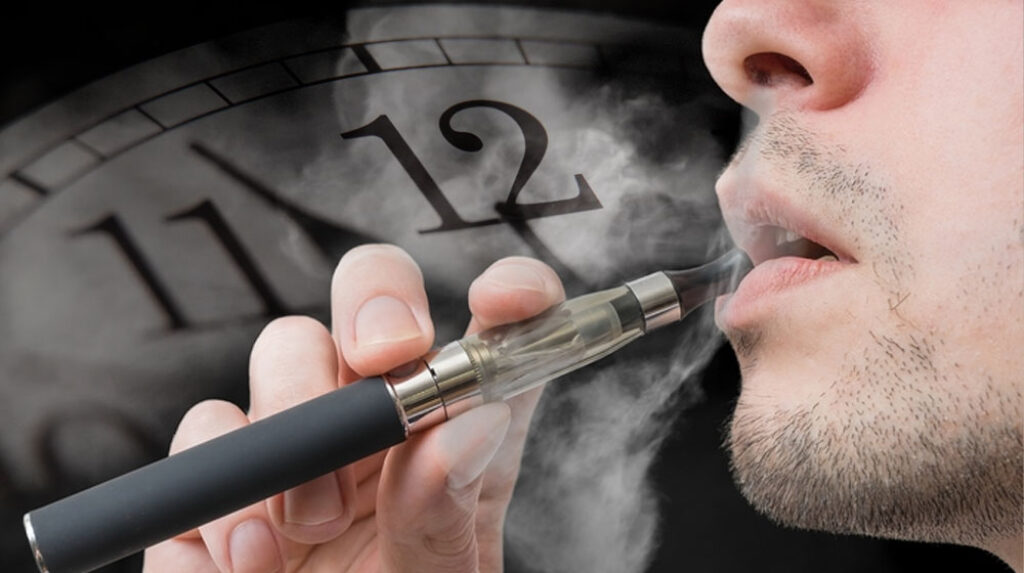
If you’re wondering how long nicotine can stay in your system after vaping, it’s important to consider various factors. The duration can vary depending on individual factors such as metabolism, frequency of vaping, and the type of nicotine test being conducted.
On average, nicotine can stay in your system for up to three days. However, for heavy vapers or those who have been using nicotine products for a long time, traces of nicotine can be detected for up to two weeks or even longer.
It’s important to note that nicotine is metabolized into cotinine, which can be detected in the body for a longer period of time. Cotinine can be present in your system for up to three weeks or more, depending on the individual and the specific test being conducted.
Factors such as age, gender, hormone levels, and certain medications can also influence how long nicotine and cotinine stay in your system.
To increase your chances of passing a nicotine test, it’s recommended to stop vaping or using any nicotine products well in advance of the test. Additionally, adopting healthy habits such as staying hydrated, exercising regularly, and following a balanced diet can help speed up the detoxification process and eliminate nicotine from your system more quickly.
Remember, everyone’s body is different, so the exact duration of nicotine in your system may vary.
Strategies to Pass a Nicotine Test
When it comes to passing a nicotine test if you vape, there are several strategies you can employ to increase your chances of success. These strategies are designed to help you eliminate or reduce the presence of nicotine and its metabolites in your system, ensuring a negative test result. Here are some effective strategies to consider:

- Quit smoking temporarily: One of the most foolproof methods is to temporarily stop vaping altogether. By abstaining from vaping for a significant period before the test, you give your body time to eliminate nicotine and its byproducts. It is recommended to abstain for at least a week or more, depending on the type of test you will be taking.
- Hydration and Exercise: Staying well-hydrated is crucial for flushing out toxins, including nicotine, from your system. Drink plenty of water to help dilute your urine and promote detoxification. Additionally, engaging in regular physical activity can stimulate circulation and sweating, aiding in the elimination of nicotine through sweat.
- Nicotine-Free Vape: Switching to nicotine-free vape in the weeks leading up to your test can significantly reduce the presence of nicotine in your system. Opt for vaping that does not contain nicotine to avoid introducing more of the substance into your body.
- Nicotine Replacement Therapy (NRT): Consider using nicotine replacement products, such as gum or patches, to satisfy your nicotine cravings without inhaling it through vaping. These products provide controlled doses of nicotine and can help you gradually reduce your nicotine intake before the test.
- Timing and Preparation: Strategically schedule your nicotine test for a time when your nicotine levels are likely to be lower, such as in the morning before your first vaping session. Additionally, make sure to follow any preparation instructions provided by the testing facility, such as fasting or avoiding certain substances before the test.
By implementing these strategies, you can increase your chances of passing a nicotine test if you vape. Remember to consult with a healthcare professional or toxicologist for personalized advice and guidance tailored to your specific situation.





